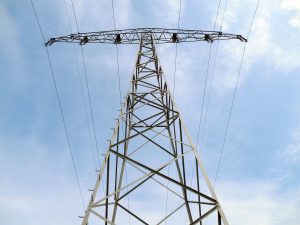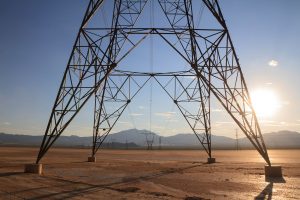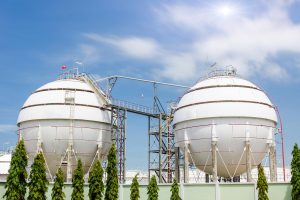Within the EU Green Deal vision and framework, renewable, low-carbon, and even emission-negative gases have a crucial role to play in decarbonising the EU economy and improving the security and affordability of energy.
These so-called “clean molecules”(biogases, hydrogen, and synthetic gases) can support in areas where direct electrification is not possible or practical, provide solutions in key ‘hard to abate’ areas of the economy, as well as facilitating the development of circular economies and the integration of energy sectors. The recent energy crisis in Europe has also brought an added impetus to accelerate the growth of these sectors to improve the EU’s energy security.
For these reasons (and more besides), clean molecules are now a key priority for policymakers and industry, making the debate around their uptake in strategic areas an important EU policy and regulatory focus.
The ‘Clean Molecules for the Energy Transition’ course from the Florence School of Regulation covers the key issues in this fast-evolving area. The three-week training (2 weeks of reading and preparation, 1 week of live classes) offers a comprehensive overview of the development of clean molecules in the EU and beyond.
The course is delivered by leading professionals from academia, policy-making, and the world of practice through:
Registration is open to all professionals (institutions, utilities, associations, academics and researchers) following the debate on the decarbonisation of the energy sector.
The EU Green Deal established a vision and a framework towards the goal of carbon neutrality for the bloc by 2050. This vision has since been applied in subsequent strategies pertaining to key areas, for example the Energy System Integration Strategy (2020) and the EU Hydrogen Strategy (2020). These two Communications envisage a prominent role in decarbonising the energy sector for the so-called “renewable and low carbon gases” or “clean molecules” (biogas, biomethane, hydrogen and synthetic methane).
Despite limited use of clean molecules to date, they are quickly attracting growing attention from policy makers and industry who see them as a potential sector coupling tool to balance energy grids as well as a means to decarbonise certain hard-to-abate sectors. As a result, the debate around clean molecules and their uptake in strategic areas has become an important EU policy and regulatory focus.
However, is the attention and excitement around clean molecules justified? How important are clean molecules for the achievement of carbon neutrality and in which areas? How are clean molecules different from each other and how are they different from fossil alternatives? What economic and regulatory barriers are stifling their market uptake and how can they be removed? Which technologies seem more promising and cost-efficient? We will explore all of these questions and more.
This intensive online training is expected to engage you for approximately 8 hours/week (excluding live classes).
The course comprises two preparatory weeks followed by one week of online sessions. From 10-23 June 2024, you will have access to our learning platform, allowing you to progress through the course materials, quizzes, and activities at your own pace.
During these self-paced weeks, you have the flexibility to manage your time according to your schedule, as there are no scheduled live classes, except for a one-hour welcome session.
The week of live sessions (24–30 June 2024) includes online classes and expert panels. Your active participation is required for a substantial portion of the day, spanning from 09:30 to 14.30 CET.
Week 1 & 2 (10-23 June 2024) | Preparatory weeks
Week 3 (24-30 June 2024) | Live sessions
Each day of the live classes will be structured as follows:
An updated program will be available soon; in the meantime, the one from the previous year is available for download as a general reference.
After completing this course, you’ll be able to:
Registration is open to all professionals (institutions, utilities, associations, academics and researchers) following the debate on decarbonisation of the energy system who are interested in having a deeper understanding of the future role of gas and its support to the energy transition.
No specific academic background is required. The language of instruction is English.
Each year, the Florence School of Regulation – Energy and Climate (FSR Energy & Climate) awards scholarships for a wide variety of training courses targeting a broad audience of professionals and academics.
Applications will be assessed by a Selection Committee of FSR members on a yearly basis. The successful candidates will be informed after February 2024 and will be provided with all relevant information on how to enroll in the online course or residential training of their choice.
Send your application by 28 January 2024.
Cancellation policy
Paid registration fee is non-refundable. However, registrant substitution may be made up to 20 days before the start date of the course.
*Please kindly send your certificate of current studies with the stamp of your university to FSR secretariat (fsr.secretariat@eui.eu).
The start and end dates of your studies should also be clearly mentioned on the document. Please make sure that your period of studies fully covers the training course duration.
Clean molecules are now a key priority for policymakers and industry, making the debate around their uptake in strategic areas an important EU policy and regulatory focus
Join us for a unique opportunity to reconnect and stay updated on the latest policy developments in the fields you previously studied.
LEARN MORE AND REGISTER
EU Electricity Network Codes & the Clean Energy Package Enter the world of electricity markets in Europe ‘Evolution of electricity markets in Europe’ is an 9-week online course in collaboration…

Crafting research with impact on energy policy and regulation LARS is a residential training addressing researchers with modeling skills who are keen to support the energy policy and regulatory debate.…

Regulation of energy utilities All you need to know in one professional course With the Annual Training on the Regulation of Energy Utilities, you will gain extensive knowledge of the fundamental principles of…

Digitalisation is transforming transport and mobility. Understanding the regulatory implications of digitalisation requires knowledge of EU digital law and policy (DSA, DMA, Data Act) and the regulatory strategy in transport…

Learn how to master electricity markets and key issues around their reform The energy crisis that was triggered by the Russian war in Ukraine has led European power markets to…

This new training course on the Regulation and Integration of Renewable Energy provides a comprehensive introduction to the topic with the latest updates, including developments in policy and regulation in…

Understand the basic principles and most topical issues of gas sector regulation in Europe and worldwide Building on our flagship ‘Specialised Training on the Regulation of Gas Markets’, this new…

This FSR-ACER residential course in Florence covers the scope of the EU Regulation on Wholesale Energy Market Integrity and Transparency (REMIT) and the way in which it is implemented. Mapping…

Learn the fundamental regulatory principles of the electricity and gas sectors through hands-on, real case activities and examples with instructors from national regulatory authorities from Europe and North America, the…
To meet, discuss and learn in the channel that suits you best.